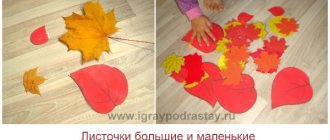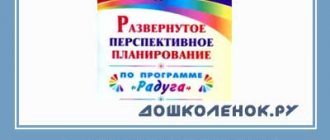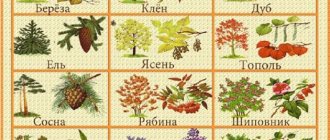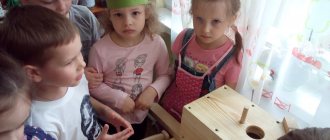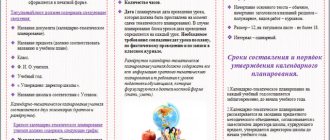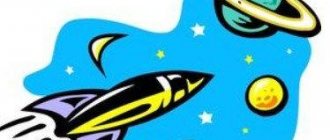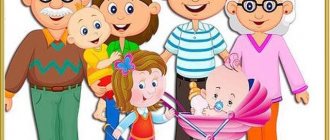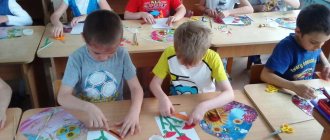Home » News » “We want to be healthy” theme of the week
August 2021
A person needs to eat, to stand up and to sit down, to grow and tumble, to sing songs, to make friends, to laugh. In order to grow and develop and not get sick, you need to be able to eat right from a very young age.
That is why gr.”Solnyshko
“I devoted all my time this week to such an important component of health as proper nutrition. The children became acquainted with the concept of the food pyramid, learned which foods contain vitamins A, B, C, D. The most informative experiment was with such favorite “harmful foods” - cola, chips, crackers, and candies. The creativity reflected healthy and unhealthy foods, everyone created their own health book! It's great to be healthy!
What is the most valuable thing in life? Kapitoshki found out the answer to this question
during Health Week. The children studied the rules of preserving vision and hearing, and learned about the importance of following a daily routine. We remembered the rules of behavior in case of fire for the rest of our lives, because we took part in a training evacuation!
In kindergarten, it is necessary to maintain not only the physical, but also the mental health of children. Unfortunately, now many preschoolers experience increased anxiety, excitability, and aggressiveness. When constantly in a large group of children, these manifestations intensify. Therefore, in the Zhuravlik
relaxation games appeared as part of Health Week. Treasure Island, Magnetic Fishing, Sand Castle, Tactile Lotto, Burdock Construction Set, Fun Caterpillar - these games combine hand massage, repetitive movements and relaxing rustling sounds, and also evoke positive emotions in children. A child can play this game alone if he wants to take a break from communicating with peers, as well as attract a partner to play and build relationships. A “magic” talking marker told the children about the rules of the new games.
Health Week in Kindergarten is a set of interesting events for every day of the week, the purpose of which is to maintain positive motivation for a healthy lifestyle among preschoolers and their parents . In the group "Rosinka"
The teachers conducted a thematic lesson “Vitaminka visiting the children”, consolidated vocabulary on the topics: “products”, “vegetables”, “fruits”, took part in the collective modeling “Vitamins on a plate”. Also in our group, parents of students took an active part in creating the wall newspaper “A healthy mind in a healthy body.” A set of various outdoor activities was prepared for the children: prevention of poor posture and flat feet, hardening, air and sun baths, an entertainment program with the characters of “Paw Patrol”. The heroes of the event played interesting and educational games on fire safety with the children, because careless handling of fire is very dangerous and can lead to disastrous consequences.
Matches are not a toy for children - Don’t forget to put them away! Don't leave it on the pillow, Don't throw it under the bed!
If they fall into the hands of a child, he will start a fire. Then you will only have torment, Life will turn into a nightmare!
Let's learn the rules of health from childhood! Wash, toughen up, strengthen your muscles! What is harmful to eat a lot, and what is healthy to eat, when and how to lie down, how straight you should sit... All this is Kapitoshki
found out this time. Then we drew the products for you too. We played a little lotto, “Fold the picture”, harvested the vitamin from the window...
“To get health, you don’t have to go far.
We need to try ourselves, and everything will work out!”
Here is the group "Sun"
I decided that I should try to maintain and strengthen my health. Have you thought about what components of health are they? Regime, proper nutrition, sleep, fresh air, exercise, hygiene and, of course, a good mood! We decided that these were quite doable, especially in kindergarten. Well, what would we do without games, creativity and those favorite experiments. We were pleased to meet the hero of G. Oster’s fairy tale “Petka the Microbe”, learned that microbes can also be useful, V. Bredikhin’s poem “Once a microbe, two microbes” made us laugh and look carefully at our nails. And how much creativity they showed when they fantasized such different microbes from plasticine! Even entire families rushed to paint! An experiment to combat soap against dirty hands caused a storm of delight when they saw how dirt and germs scattered from a small drop of soap. We firmly decided to demonstrate it at home and... went to wash our hands in compliance with all the rules. On walks you can enjoy your favorite skis and work in the fresh air (winter threw up work this year). But rosy cheeks and a good mood are an indicator of a healthy body! The daily routine and proper nutrition in kindergarten are the basis. Games helped reinforce what was harmful and good for health, and sleep helped restore strength. Our guys’ efforts were a success!
This week the guys from the group Teremok
went on a tour of the kindergarten with the Zdoroveyka rabbit. The kids learned where and how the kindergarten takes care of their health. The kids especially liked the laundry room, where they wash their bed linen and towels. The cooks prepare healthy and tasty dishes, in the medical office they make oxygen cocktails and give the vaccinations necessary to prevent getting sick. In the gym, all the guys strengthen themselves and improve their health through physical education. The healthy woman brought the kids a magic bag, which helped the kids learn that there are healthy sweets - fruits and berries. We planted dill, lettuce and sorrel, edible and healthy plants, on the windowsill, and have already seen shoots. The first to emerge was the arugula salad. Also, thanks to Nikita’s mother, who brought us real cotton bolls, we learned how and what T-shirts, socks and shorts for the kids are made from.
It should, Cherries
, know Everyone needs to sleep longer. Well, don’t be lazy in the morning - get ready to exercise!!!
Brush your teeth, wash your face, and smile more often, toughen up, and then you won’t be afraid of the blues.
The one who gets up with the sun, does exercises, brushes his teeth in the morning and plays hide and seek, is a sporty person, and quite cheerful. Try to be like this in kindergarten and at home.
Children of the group "Businka"
throughout the week we looked at illustrations about sports; together with the teacher we had educational conversations “We are friends with physical education”, “Why do you need to move a lot?” “If you want to be healthy”, “Where do vitamins live”, “Cleanliness and health”; listened to fiction about sports and a healthy lifestyle; played a variety of didactic games - “What is healthy and what is harmful to health”, “What is good and what is bad for the body”, “What would happen if...”, “Healthy food ", "Guess the sport."
We dedicated this week to Health, remembering the 5 rules of health: eat right, exercise, keep your body clean, walk in the fresh air, always be in a good mood. We read, talked, played. We talked about safety on a winter walk. We watched the cartoon “The Story of a Little Tooth,” during which we played various games and talked. To lift the mood, we drew a sprig of mimosa and made flowers with napkins and made “Vitamins on the table” appliqués. Parents helped make new games on the topic. On Friday we spent winter.
For every child, the most important example and motivator in life are their parents, whom they strive to be like in everything, so a healthy lifestyle should start with them. With the guys from the group "Umka"
“During the week, conversations were held about a health-saving lifestyle, the importance of vitamins in a person’s life, and the importance of following a daily routine. On Friday, an event dedicated to the farewell to winter “Maslenitsa” was held. The children received a positive charge and joined the traditions of folk culture.
In preschool childhood, the foundation of a child’s health is laid, his intensive growth and development occurs, basic movements, posture, as well as the necessary skills and habits are formed, basic physical qualities are acquired, character traits are developed, without which a healthy lifestyle is impossible. An important task for adults is to form in children initial ideas about a healthy lifestyle and ways to maintain and improve health. Development of interest in physical education and sports in preschoolers. Guys of the group Cockerel
Have you found out what it really is – health? Why does a person need it? Through games, children learned about what to do to stay healthy.
In our free activity we created fruits and vegetables with our own hands - indispensable helpers in strengthening our health. They also displayed them in their creative works. The children compiled thematic newspapers: “Harmful and Healthy Products,” “Health Lives Here.” With great pleasure, children go to physical education classes, where they learn to be brave, dexterous and skillful.
From March 15-19 in the group “Firefly”
The topic of the week was: “We want to be healthy” This week we worked on the topic of health. Together with the children, we remembered the rules of personal hygiene, what needs to be done to improve health, played didactic games “Where do vitamins live”, “What have I learned and what will I use in my life to preserve and improve health”, “Harmful and beneficial”, “ I know how to choose healthy food”; role-playing games “Correspondents” were organized for children, interview topics: “How I got sick”, “What I know about my health”, “I want to dress correctly”, “How I got sick”, “What I know about my health” -goal: to develop a monologue form of speech; develop the ability to compose stories about events from personal experience, and come up with your own endings to fairy tales. Various experiments were carried out, we looked at our skin, hair and saliva through a microscope.
Also this week we talked about a healthy lifestyle, the role of brushing teeth, sports for girls and boys, diet and the role of sports in human life. The most interesting works were read, such as “Moidodyr”, “Exercise and Colds”, thematic albums and newspapers about a healthy lifestyle were produced.
In the group "Why"
The week was dedicated to a healthy lifestyle. Everyone knows that preserving and strengthening the health of children is one of the main goals of the pedagogical process. Therefore, teachers conducted playful and educational activities throughout the week and combined various types of children's activities. This made the week bright and memorable for the children.
In the senior group "Kolobok"
The children learned about the importance of a healthy lifestyle and playing sports. The Week included playful and educational activities, combining various types of children's activities - everything that children like
The guys from the group "Rosinka"
look after their health: do exercises in the morning, correctly perform cultural and hygienic skills, after sleep do gymnastics with elements of breathing exercises, do eye exercises, articulation gymnastics, walk along the path of health, regularly walk in the fresh air... In a group together with teachers Conducted a conversation “What is Health?”, enriched vocabulary based on deepening children’s knowledge about Human Health. We talked about proper nutrition and different sports. They painted based on the “Dymkovo Toy” painting, improved the technique, and fixed elements of decorative painting. We made the applique “The water is far away, but the bucket is big.”, and cultivated an interest in folk culture. Our boys took part in a football tournament and took second place!!!
2020
Zboleyka lived in the world, Zdoroveyka lived next to him...” with these words the week in the “Sunny” group began, and then they started morning exercises, since no one wanted to be like Zboleyka! They talked informatively and entertainingly about such important concepts as “health” and “healthy lifestyle”: they drew, played various games and even held competitions for accuracy. A laptop about a healthy lifestyle helped children reinforce the importance of these concepts. I’m glad that many kids go in for sports and love it, which they reflected in their drawings on the topic “My Favorite Sport”
That's how it was
Calendar-thematic plan of work on the theme of the week “Get Healthy”
Lyubov Beltikova
Calendar-thematic plan of work on the theme of the week “Get Healthy”
Topic of the week: “Get healthy”
Tasks:
1. Expanding ideas about health and the important components of a healthy lifestyle (proper nutrition, movement, sleep) and factors that destroy health, fostering the desire to lead a healthy lifestyle.
2. Development of ideas about the peculiarities of the functioning and integrity of the human body, teaching children to be attentive to their own health, to take into account the characteristics of their body and health (allergies, poor vision, etc.).
3. Formation of the ability to determine the quality of products based on sensory sensations.
4. Formation of ideas about the rules of patient care, development of emotional responsiveness and sensitivity.
Monday:
Social and communicative development (literacy)
“Analysis of the syllables SHA, SHO, SHU; SA, SO, SU” - Continue to introduce children to the sound [w] and the letter Sh; teach children to read syllables with this sound, find a stressed syllable in words, divide words into syllables.
Artistic and aesthetic development (music) - according to the plan of the music director
Cognitive development (safety)
“Traffic light road signs” tell children when the traffic light appeared, expand and consolidate children’s knowledge about traffic lights and traffic rules; give an explanation of the traffic controller’s profession and explain the signs he uses when regulating the road; remember and expand children's knowledge about road signs and their purpose/
Individual work:
D/i “Who helps you be healthy?” (1.5).
Practice jumping up from a place (10.13).
Situational conversation on the topic: “Five things to do before bed” (2.8).
Educational work during regime moments:
Morning:
Conversation on the topic: “What is health?” — consolidate the concept of “health”; expand children's knowledge about preventive measures to prevent diseases and injuries.
D/i: with Dienesh blocks “What has changed?” - notice changes in the arrangement of objects, reflect these changes in speech.
Walk:
Bird watching in the kindergarten area - teach to recognize and distinguish birds by plumage, size, voice; develop observation and memory; cultivate a friendly attitude towards birds.
Labor: cleaning the sandbox from snow and debris - to cultivate a positive attitude towards work; responsibility when carrying out assignments.
P/n: “Tag in a circle” - learn to act quickly on a signal from the teacher; consolidate movement skills with side steps in different directions; cultivate respect for each other.
Evening:
D/i: “Healthy food store” - consolidate children’s knowledge about healthy foods; We develop attention, logical thinking, speech.
Introduce children to the proverbs: “Health is more valuable than gold”, “A healthy person does not need an enemy” - teach children to explain the meaning of these proverbs; develop reasoning and dialogical speech; We cultivate a careful attitude towards our health.
Independent activities:
Looking at illustrations about various sports.
Independent games for children with external materials.
Offer children coloring pages on the topic “Vitamins from the garden.” Improve your pencil skills.
Interaction with families of pupils:
Talk with parents about the well-being of their children.
Individual conversations and consultations at the request of parents.
Tuesday:
Speech therapy according to the speech therapist’s plan.
Physical development
L. I. Penzulaeva (senior group, No. 31, p. 44) - exercise children in running with changes in the tempo of movement, in walking between objects (“snake”); repeat dribbling the ball while walking, moving to the designated place; practice climbing through a hoop with a ball in your hands, in balance.
Artistic and aesthetic development (sculpting/applique)
“Shoe in a Puddle” - teach children to cut out double silhouettes of paired objects. Improve and diversify applicative technique. Learn to accurately convey the form and give it additional expressive features. Develop creative imagination. Cultivate an interest in learning about the world around us.
Individual work:
Game for developing attention “Ear, nose, hand” (3.12).
Practice jumping in place with turns to the right, left, around yourself (6.17).
Laying out figures from waste material “Lay it out yourself” (26).
Educational work during regime moments:
Morning:
Conversation on the topic: “Who am I?” - to give children an idea of the appearance of a person, of his characteristics as a living organism. Arouse the child's need to talk about himself.
Making and guessing riddles about the structure of the human body is to develop memory and thinking.
Walk:
Observing pigeons - expand knowledge about the appearance of birds, their habits and habitat; form real ideas about the life of birds.
Collective cleaning of the area from remnants of snow and debris - to teach cleanliness and order in the area.
P/n: “Catch up with the pigeon” - improve agility, speed (run at the signal, without looking back).
Evening:
Sedentary game “What the hands can do” - develop memory and reaction speed, throwing accuracy and dexterity when receiving the ball, verbal vocabulary, expressiveness of movements; to form honesty when following the rules of the game.
S-r/i: “Hospital” - practical consolidation of acquired knowledge. To cultivate respect for the medical profession, to understand its enormous importance for each of us.
Independent activities:
Looking at illustrations from the book “My Body.”
Independent games for children with external materials (flags, balls, ribbons).
Board games: “Loto”, “Puzzles”, “Labyrinths”.
Interaction with families of pupils:
Prepare a consultation for parents on the topic: “Prevention of colds.”
Wednesday:
Cognitive development (mathematics, development of horizons
E. V. Kolesnikova (lesson 11) – learn to guess a mathematical riddle, write down the solution using numbers and signs; write the number 7, ordinal counting, answer the questions correctly: how much? On the counting place, lay out a rectangle from counting sticks, draw rectangles in a checkered notebook, transform the square into other geometric shapes. Introduce the number 7. Develop skills of self-control and self-esteem.
Physical development
L. I. Penzulaeva (senior group, No. 32, p. 45) - exercise children in running with changing the pace of movement, in walking between objects (“snake”); repeat dribbling the ball while walking, moving to the designated place; practice climbing through a hoop with a ball in your hands, in balance.
Social and communicative development (labor)
“Ambulance for toys” - teach children to take care of toys, make sure that scattered and broken toys do not turn into garbage, make sure they are complete, and turn blue. Improve manual skills in working with broken toys. Continue to teach children to work in a team. Foster a sense of responsibility for a common cause.
Individual work:
Didactic game “Boys and Girls” (7.14).
Strengthen balance skills by walking on a gymnastic bench (15.20).
Offer to lay out a pattern from wooden sticks or matches “Lay out a pattern” (25). Educational work during regime moments:
Morning:
The situation of communication on the topic: “What do I know about myself” is to draw the child’s attention to himself, to his body, his organism, to his capabilities and abilities.
CGN at the table - continue to teach children how to behave correctly at the table while eating (sit up straight, do not sway in the chair, do not rush and do not talk with your mouth full); cultivate cultural behavior at the table, neatness.
Walk:
Observing the clothes of adults and children - continue to develop the ability to establish the simplest connections between changes in living and inanimate nature.
Labor - putting things in order, collecting branches and old leaves - promotes the desire to work together, to experience the joy of communicating with each other.
P/n: “Catch up and jump” - achieve good jumping technique when taking off.
Evening:
D/i: “Assemble a human figure” - consolidate the child’s knowledge about the structure of the body. Develop spatial understanding of the human structure.
Ball game “Air, earth, water” - consolidate children’s knowledge about natural objects. Develop auditory attention, thinking, and intelligence.
Independent activities:
Offer the poster “Parts of the Body” to the children to look at.
Independent games for children with outdoor materials (buckets, snow shovels).
Printed board game: “Collect physical education equipment” (ball, jump rope, cube, etc.)
Interaction with families of pupils:
Conversation with parents on the topic: “How to dress?” (offer a table for choosing clothes taking into account different temperatures).
Thursday:
Speech development
A retelling of K. Ushinsky’s work of art “Medicine” - to cultivate a feeling of love and affection for the closest and dearest person - mother; develop a desire to care for those closest to you; learn to analyze text using questions and answers; consolidate the skill of consistency in retelling; develop dialogical and narrative speech.
Artistic and aesthetic development (music) - according to the plan of the music director
Artistic and aesthetic development (drawing/decorative arts)
“Children do exercises” - reinforce how to make a sketch with a simple pencil and then paint over it with colored pencils; arouse interest in sports; develop fine motor skills; to form in children the desire to complete the work they start.
Individual work:
Solving the problem situation “Why do you need a handkerchief?” (18.24).
Learn to run long jump (4.9).
Practice cutting out symmetrical pieces from paper folded in half (19.22). Educational work during regime moments:
Morning:
Compiling a story with children on the topic: “How different we are” - teach children to compose a coherent story about another person (name, age, height, hair color, eye color).
R/i: “The fourth odd one” - strengthening children’s ability to identify a common feature in words, develop the ability to generalize.
Walk:
Observation of cirrus clouds - to develop the ability to see the beauty of the sky; develop creative imagination; evoke a desire to fantasize.
Labor: clearing paths - develop in children the ability to correctly perform relevant labor operations.
P/n: “Find where it’s hidden?” -to develop endurance, observation, and parity in children.
Evening:
Construction from planar geometric shapes: “Sports equipment” - development of children’s logical thinking.
Musical game: “Walk” - developing a sense of rhythm.
Independent activities:
Invite children to work with pictures-photographs with various images of emotions “Kaleidoscope of Emotions”.
Independent games for children with external materials.
Role-playing games on the site.
Offer children counting sticks to lay out according to the diagrams.
Interaction with families of pupils:
Prepare a consultation for parents on the topic: “Time for healthy walks.”
Friday:
Cognitive development (construction)
“Sport is life” - to develop the ability to comprehend the proposed models in diagrams and reproduce them from the designer, to consolidate and develop the concept of a healthy lifestyle, focusing on playing sports, to enrich the vocabulary of children.
Physical development (street)
L. I. Penzulaeva (senior group, No. 33, p. 45) - practice slow continuous running, throwing the ball in ranks; repeat game exercises with jumping and running.
Speech development (reading fiction)
Compiling a story based on proverbs - to give children an idea of genre features and the purpose of proverbs; learn to comprehend the meaning of proverbs.
Individual work:
Situational conversation “Children, drink milk - you will be healthy!”
(23,27).
Practice jumping in place with turns to the right, left, around (11.21).
“Didactic game “Who do I look like?” (16).
Educational work during regime moments:
Morning:
Reading K. Chukovsky’s “Moidodyr” - develop the ability to listen to a work of art and respond emotionally to it.
Looking at the poster “There is a time for every activity” is to show children the relationship between maintaining a daily routine and a healthy lifestyle.
Walk:
Observation of icicles - enrich children's knowledge about inanimate natural phenomena; activate children's vocabulary; consolidate knowledge that you cannot walk under large icicles and eat them.
Labor: sweeping paths with a broom - to teach to carry out work assignments.
P/n: “Sly Fox” - to develop endurance and observation in children.
Evening:
Experimental activity “Properties of Ice” - invite children to make colored pieces of ice, do experiments with them: look at the sky through them, roll a stick along the path.
Watching the cartoon “Oh and Ah” will enrich children’s knowledge about a healthy lifestyle and emotional perception.
Independent activities:
Offer children pictures to look at based on the plot of the works by E. Moshkovskaya “Ears”, K. Chukovsky “Moidodyr”, A. Barto “The Dirty Girl”.
Independent games for children with external materials.
Invite children to play with Cuisiner sticks and Dienesh blocks.
Interaction with families of pupils:
Invite parents to start a new family tradition - doing family morning exercises on weekends.
Relevance
The problem of health and its preservation in modern society is more than acute. The phrases “health-saving technologies” and “formation of a healthy lifestyle” have taken a strong place in conversations with parents and children, in the plans of educational work of teachers of preschool institutions. The first ideas about health and a healthy lifestyle are formed already in preschool age. It is during this period that intensive development of organs takes place, the formation of functional systems of the body, the basic personality traits are laid, character is formed, the attitude towards oneself and towards others. Currently, the task of preserving and strengthening the health of children, both physical and mental, introducing them to a healthy lifestyle and mastering modern health-saving technologies in our kindergarten is one of the most significant and priorities. But the problem still remains relevant. How should you raise a child so that he understands the importance of health and knows how to treat it with care? Adults (teachers and parents) need to begin solving this problem from the earliest years of a child’s life, solving it systematically and together.
Janusz Korczak wrote in his observations: “It seems to adults that children do not care about their health... No. Children, just like adults, want to be healthy and strong, but children do not know what to do for this. Explain to them and they will be careful."
All of us, parents, doctors, teachers, want our children to study well, become stronger year after year, grow up and enter a big life as people who are not only knowledgeable, but also healthy. After all, health is a priceless gift. And it is important to understand that caring for the health of our children today is the full-fledged labor potential of our country in the near future.
Project goal : developing interest in a healthy lifestyle, one’s health, movements and sports;
Project objectives:
- To consolidate children’s knowledge about the concept of “health”;
- Clarify the rules for maintaining health;
- To develop an interest in one’s own body, well-being, and mood related to health;
- Strengthen the rules of the hostel related to preserving the health of other people;
- Satisfy children's natural need for movement;
- To instill in children a conscious attitude towards the need to toughen up and play sports.
